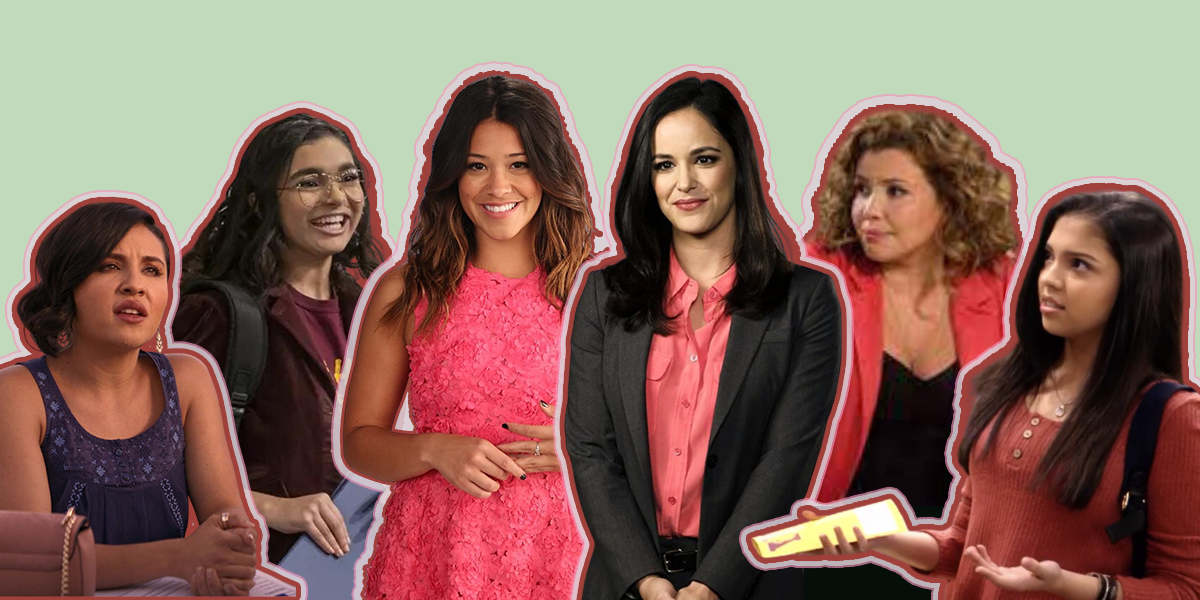The first time I saw Amy Santiago on Brooklyn 99, I beamed. An intelligent Latina woman, in a mainstream sitcom, starring alongside another Latina (Rosa Diaz) — I was hooked. In Amy’s love for reports, Chicago-style citations, and high expectations for herself, I saw myself. When One Day at a Time featured Elena and Penelope Alvarez, highlighting their intelligence and hard work, I was also excited. It was another win for Latina representation. I loved all of them, and I still do. At the time, they were everything I could have hoped for in a Latina lead: strong, independent, and well-developed. They weren’t the basic tough and sexy Latinas of earlier media — they felt like real people rather than fetishes.
At some point, though, I started to notice a new pattern. Amy is an overachiever, Elena is an overachiever, Ashley Garcia from Ashley Garcia: Genius in Love is a genius, Marisol Fuentes in Mr. Iglesias is her teacher’s favorite student, and Jane Villanueva from Jane the Virgin is notoriously type A. Amy Santiago, Amy Sosa, and Penelope Alvarez climb their way into better professional positions with hard work. All these women are outspoken, determined, and socially aware, forming a new Latina stereotype. They serve as the antithesis to anti-immigrant rhetoric, showcasing the intellect and strong work ethic Latinas often bring to the US. They fight against Latinx stereotypes of being uneducated. It is deeply important that these characters exist. To see Latina women who are confident, outspoken, and queer on TV — with many layers to them — is necessary.
Latinas are strong. However, the work we take on is not the only thing that makes us strong. Latinas are not all ambitious and resolute — that does not define us. We are not a monolith, and not all of us are reflected in these characters. Plus, our worth is not defined by how intelligent or hard-working we are. We are worthy because we are people.

As I come back to these shows, I feel we’re seeing the creation of a new Latina stereotype. Amy Sosa, Penelope Alvarez, and Gentefied’s Lidia Solis are all mothers trying to nurture their families in the midst of chaos. This is simply reality for many Latina women and daughters. Often, there is no other choice. However, these characters highlight a gendered divide between the expectations of women and men in Latin families. While Amy is working to provide for her daughter, her ex-husband consistently fails to support her. Penelope is trying to raise two children, while her ex-husband recovers from PTSD. Lidia is still nursing and starting a new full-time job, while Erik falters in his ability to be there for his family. These men are allowed to fail at the expense of their partners, and this feeds unbalanced and gendered standards about what Latinas are capable of.
There are many women who balance work, family, and personal fulfillment. Their stories deserve to be told, and it’s important they are. These characters serve as the poster example for immigrant Latinas because they are hard-working, contribute to the economy, and take care of their families. These ideals are universally accepted as positive qualities.
But what happens when Latina women aren’t allowed to fail?
Where are those stories? Where are the Latinas who struggle academically? Where are the Latinas who had to drop out of high school or post-secondary? Where are the Latinas with disabilities? Where are the shy and soft-spoken Latinas? Our current mediascape leaves them out — and intentionally or not, this new Latina stereotype sends a message around who is allowed to take space.

Genetefied hits the nail on the head: “I have done good things, I have done bad things like everyone,” Casimiro Morales says, defending himself against deportation. “I’m not a ‘perfect’ immigrant.” Many Latina women aren’t “perfect” immigrants either, but we rarely get a chance to see that truth reflected back to us. We’re not all as put together as the women in these shows. Yes, some of these characters struggle with depression and anxiety, but overall they are consistently strong enough for whatever they face.
In reality, women (including Latinas!) can and do make wrong choices, get easily distracted, or do not understand politics. It’s important to write Latina characters who have just as many flaws as any other character. Their stories are worthy of being told, too.
As much as I love all the Elenas and Amys of the world, it can be suffocating to consistently write Latinas as this brand of person. It’s just a new Latina stereotype. As much as I share some similarities with these women, I have never been a straight-A student — and I likely never will be. I cannot take on the immense work that these women do because of my chronic conditions. And sometimes, I’m tired and want to stay in bed, sit with my emotions, and not focus on labor. Sometimes I would like to rest without the guilt of feeling like I’m wasting the opportunities my parents worked so hard to get for me.
Show me Latina women who are vulnerable, confused, and deeply struggling. We need to keep the strong streak of Latina women representation going, but it’s time to diversify. We are only human and we should be portrayed that way.

